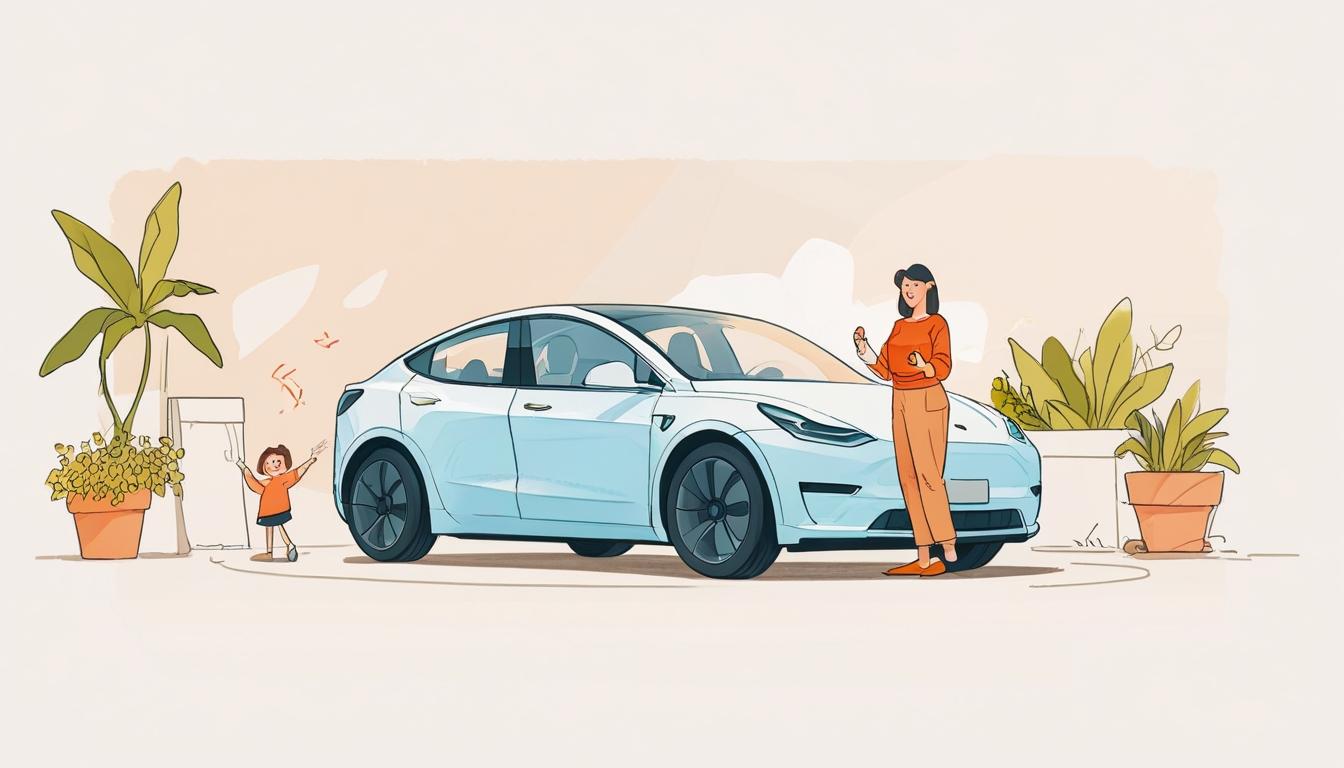The electric vehicle revolution has ushered in a new era of convenience and lifestyle enhancement, as exemplified by a busy mother’s enthusiastic endorsement of her Tesla Model Y. Transitioning from conventional vehicles to this electric SUV has transformed her daily routine, putting to rest her initial concerns about range anxiety. Over time, these fears were overshadowed by her obsession with the Model Y, reflecting not just a vehicle choice but a significant lifestyle upgrade.
At the heart of her appreciation lies the Model Y's impressive array of features. The sleek and modern design is not just eye-catching; it represents a broader shift in automotive aesthetics towards more progressive, sustainable options. More importantly, the comfort and smoothness of the driving experience provide a sense of sanctuary after long days of juggling multiple responsibilities. The vehicle’s technology is highlighted as particularly user-friendly, with even those less familiar with tech finding it accessible and straightforward.
The convenience provided by Tesla's exceptional service model adds an extra layer of appeal. Home-based services, such as a technician coming to perform necessary maintenance tasks like tire rotations, exemplify Tesla's commitment to customer satisfaction. This model not only saves time but allows for multitasking—a valuable asset for parents balancing numerous obligations. The convenience offered through the Tesla app for managing appointments further enhances this experience, illustrating how Tesla aims to make electric vehicle ownership as hassle-free as possible.
Despite her personal satisfaction, broader challenges loom for Tesla. Recent sales data from France indicate a troubling decline, with reports showing nearly a 9% dip in sales in the preceding quarter, the first such drop in almost four years. Factors contributing to this downturn include a potential slowdown in consumer demand and increased competition, particularly from Chinese manufacturers like XPeng. Their offerings, such as the XPeng G6, provide compelling alternatives that boast competitive pricing and innovative features, intensifying the competitive landscape.
The issue of competitiveness is further underscored by the fluctuating perceptions of the Tesla brand, influenced significantly by CEO Elon Musk's public persona and some cost-cutting measures. Analysts have raised concerns about how these factors may affect Tesla's standing in various markets, opening doors for rivals who are rapidly innovating and appealing to price-sensitive consumers.
Despite these market challenges, the electric vehicle segment as a whole continues to display robust growth. Consumers are increasingly recognising the long-term benefits of switching to electric vehicles—not just from a cost standpoint, but also for their positive impact on the environment. Nevertheless, Tesla's recent sales declines serve as a reminder of the importance of adaptability in an evolving market landscape.
In summary, while the personal experience of Tesla ownership can be overwhelmingly positive—highlighting convenience and cutting-edge technology—the company faces considerable challenges that will require strategic recalibration in the face of vibrant competition and shifting market dynamics. The future of electric vehicles promises exciting innovations, but success will depend heavily on firms like Tesla being responsive to both consumer needs and competitive pressures.
Reference Map
- Paragraphs 1, 2, 4
- Paragraphs 2, 3
- Paragraph 4
- Paragraphs 4, 5
- Paragraph 5
Source: Noah Wire Services
